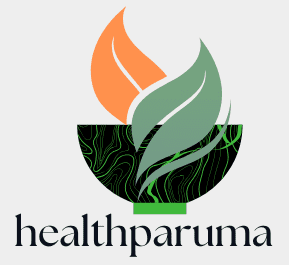What is Reproductive Health?
Introduction:
Reproductive health refers to a state of complete physical, mental, and social well-being in all matters relating to the reproductive system. It covers everything from puberty and menstruation to fertility, contraception, pregnancy, sexually transmitted infections (STIs), and menopause.
According to the World Health Organization (WHO), reproductive health implies people are able to have a satisfying and safe sex life and that they have the capability to reproduce and the freedom to decide if, when, and how often to do so.
Key Components of Reproductive Health
Understanding the key pillars helps individuals make informed decisions and maintain long-term health:
-
Sexual health: Promotes a respectful and positive approach to sexuality.
-
Fertility health: Concerns one’s ability to conceive and bear children.
-
Menstrual health: A critical indicator of overall reproductive wellness.
-
Contraceptive access and education
-
Prenatal and maternal health
-
Prevention and treatment of STIs, including HIV/AIDS
Common Reproductive Health Issues
| Condition | Description |
|---|---|
| Polycystic Ovary Syndrome (PCOS) | Affects hormone levels, causing irregular periods and infertility. |
| Endometriosis | Uterine lining grows outside the uterus, causing pain and potential infertility. |
| Erectile Dysfunction (ED) | Common in men over 40, affecting sexual function. |
| Infertility | Affects 1 in 6 couples globally, per WHO data. |
| STIs | Chlamydia, gonorrhea, and HPV are common but preventable. |
🔍 Fact: According to the CDC, nearly 20 million new STIs occur each year in the U.S.
Male vs. Female Reproductive Health
Female Reproductive Health Focus
-
Menstrual cycles
-
Ovulation and fertility tracking
-
Pap smears and HPV screening
-
Prenatal care
-
Menopause management
Male Reproductive Health Focus
-
Sperm health and testosterone levels
-
Prostate health
-
Erectile function
-
Testicular exams
👉 Both genders benefit from regular checkups, hormone monitoring, and STI screenings.
Lifestyle Factors Affecting Reproductive Health
-
Diet: Nutrient-rich foods support hormonal balance.
-
Exercise: Regular movement boosts fertility and regulates periods.
-
Sleep: Poor sleep affects testosterone and estrogen levels.
-
Stress: Chronic stress can delay ovulation and reduce sperm count.
-
Smoking and Alcohol: Both lower fertility and increase miscarriage risks.
🧠 Expert Insight: Dr. David A. Greuner (Mount Sinai) emphasizes, “Tobacco use is one of the biggest threats to fertility in both men and women.”
Reproductive Health Across Life Stages
| Life Stage | Concerns |
|---|---|
| Adolescence | Puberty, menstruation, safe sex education |
| Young Adulthood | Contraception, STIs, fertility awareness |
| Middle Age | Family planning, perimenopause, prostate checks |
| Senior Years | Menopause, erectile health, hormonal shifts |
Taking proactive steps at every life stage ensures healthier outcomes.
Preventive Care and Screenings
Regular medical screenings help detect issues early:
-
Pap Smear: Every 3 years starting at age 21.
-
HPV Test: Often combined with a Pap smear after age 30.
-
Mammogram: Starting at age 40 (earlier if family history).
-
STI Testing: Annually or more frequently if sexually active with new/multiple partners.
-
Semen Analysis: For men trying to conceive.
Mental and Emotional Aspects
Reproductive health isn’t only physical—it deeply affects emotional well-being. Issues like infertility, menstrual disorders, or sexual dysfunction can lead to anxiety, depression, and relationship problems.
Supporting Mental Wellness:
-
Therapy and counseling
-
Mindfulness or meditation
-
Support groups
-
Honest communication with partners
Nutrition and Reproductive Wellness
Foods That Boost Reproductive Health:
-
Leafy greens (spinach, kale): Rich in folate
-
Avocados: Loaded with healthy fats
-
Nuts & Seeds (walnuts, flaxseed): Support hormone production
-
Fatty Fish (salmon, sardines): Rich in omega-3s
-
Whole Grains: Help stabilize insulin levels
📚 Research: A study published in Fertility and Sterility (Harvard School of Public Health) found that women who followed a “fertility diet” rich in plant-based proteins and full-fat dairy had a 66% lower risk of ovulatory infertility.
Expert Advice and Research Studies
-
Dr. Shanna Swan, reproductive epidemiologist, warns of declining sperm counts in her book Countdown.
-
American Society for Reproductive Medicine (ASRM) recommends early fertility assessments for women over 35.
-
CDC’s National Survey of Family Growth provides updated statistics on sexual behavior and contraceptive use.
✅ Tip: Stay informed with trustworthy medical resources like Mayo Clinic, CDC, WHO, and peer-reviewed journals.
Take Control of Your Reproductive Wellness
✅ Want to Boost Your Reproductive Health Naturally?
🛒 Check out Expert-Approved Supplements
Support hormonal balance, improve fertility, and enhance vitality – doctor-recommended formulations
Frequently Asked Questions (FAQ)
Q1. What is the best age to check fertility?
A: Women should consider fertility screening by age 30 if planning to delay pregnancy. Men can check sperm health any time, especially if trying to conceive.
Q2. Can diet improve fertility?
A: Yes. A balanced diet rich in antioxidants, omega-3s, and whole foods can significantly improve reproductive outcomes in both sexes.
Q3. How often should STI screenings be done?
A: Annually if sexually active with multiple partners or at the start of a new relationship.
Q4. What are signs of poor reproductive health?
A: Irregular periods, pelvic pain, sexual dysfunction, and fertility struggles can all be red flags.
Q5. Can stress impact reproductive health?
A: Absolutely. Chronic stress interferes with hormone production and ovulation.
Final Thoughts
Reproductive health is more than the absence of disease—it’s a lifelong commitment to well-being. Whether you’re planning a family, maintaining hormonal balance, or navigating sexual health, staying informed and proactive is the key.
✅ Take charge of your reproductive health today!

